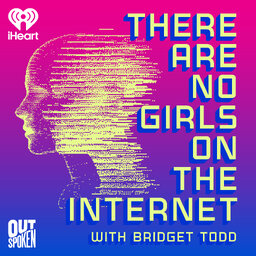Missy Elliott: Digital Innovator
Let's take a little break from the depressing newscycle and talk about the iconic Missy Elliott and how she's been changing the digital game since the very beginning.
Check out the video for The Rain: https://www.youtube.com/watch?v=hHcyJPTTn9w
“Supa Dupa Fly: Black Women as Cyborgs in Hiphop Videos" by Dr. Shaviro: http://www.shaviro.com/Othertexts/MissyKim.pdf
"Missy Elliott" with Margot and Richie Tenenbaum, Halloween 2008: https://www.tangoti.com/episode-12-missy-elliott-digital-innovator
Learn more about your ad-choices at https://www.iheartpodcastnetwork.com
In 1 playlist(s)
There Are No Girls on the Internet
Marginalized voices have always been at the forefront of the internet, yet our stories often go over…Social links
Follow podcast
Recent clips

Amazon Ring Super Bowl Ad BACKFIRES; YouTubers Exploit Women's Arrest Videos; Salesforce CEO ICE "Joke" – NEWS ROUNDUP!
1:10:54

University of Oklahoma Trans Instructor's Attorney Still in the Fight After Appeal Denied
47:18

Should You Trust Andrew Huberman? What CBS's Epstein Disaster Reveals About Wellness Gurus
1:32:51
 There Are No Girls on the Internet
There Are No Girls on the Internet